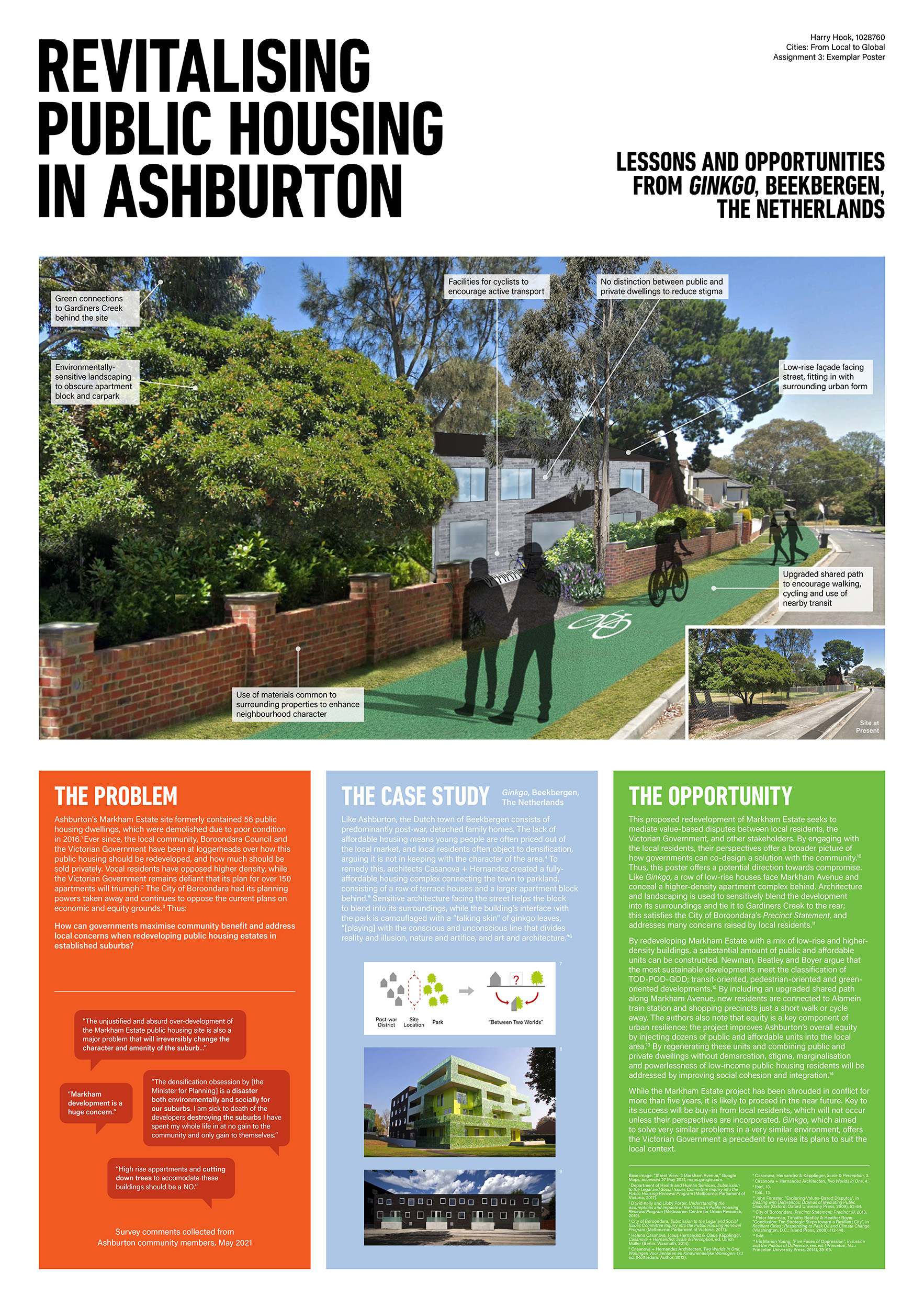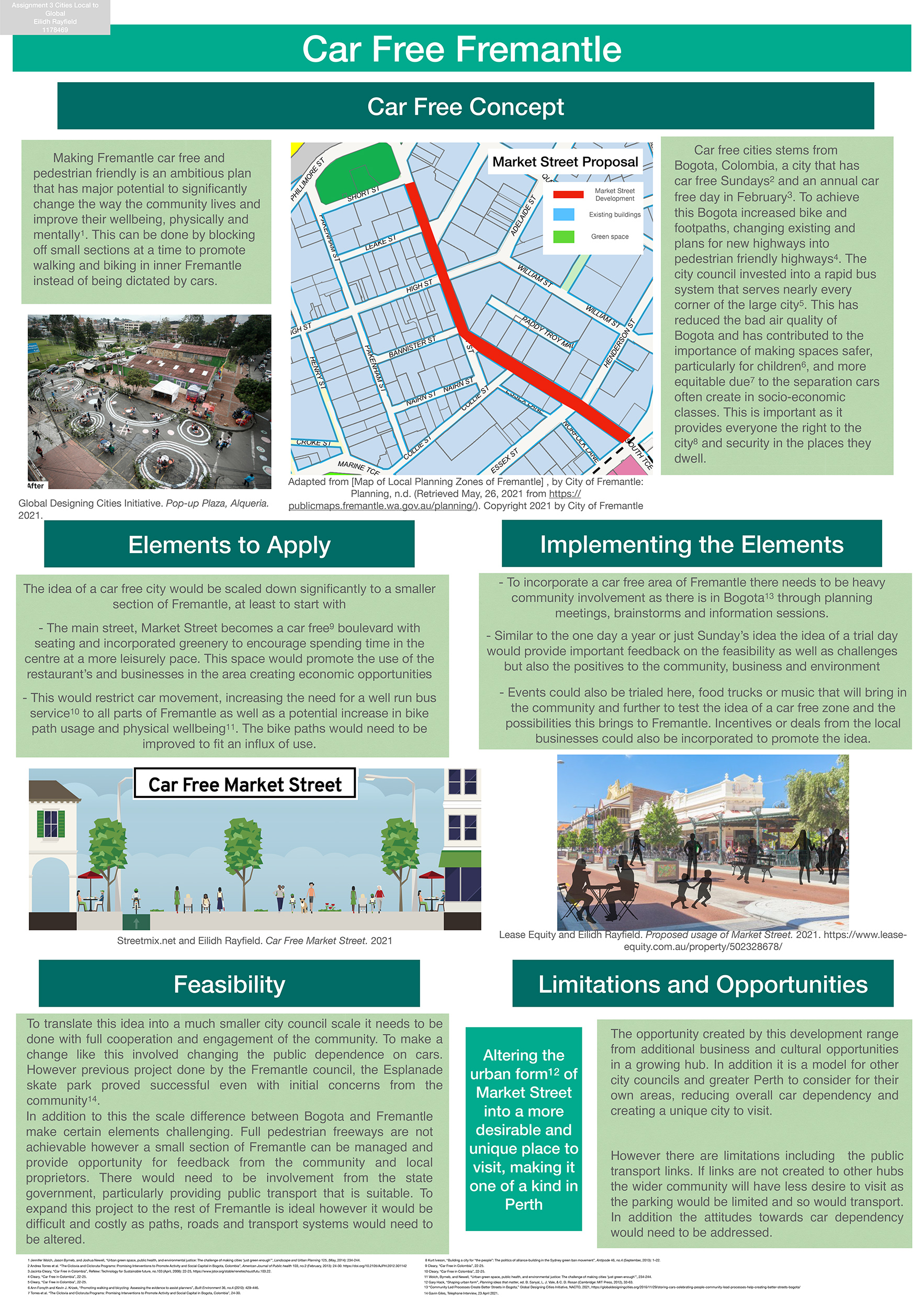Coordinator: Dr Patrick Cobbinah
Tutors:
Samuel Miles, Karina Putri, Nana Oppong-Yeboah,
Oliver Cope, Neeraj Dangol, Hamed Tavakoli
Cities from Local to Global is a second year undergraduate subject in the bachelor of design programme. This subject moves from the local scale (planning issues on my street), to the metropolitan (planning issues in my city-region) and international (planning issues in a global context) scales, in order to examine central issues and processes affecting planning systems in Australia and around the world. This subject engages students to critically reflect on the interconnected of urban planning issues at the neighbourhood level through to the global level, their complexities in scale and depth and how lessons can be drawn from such interactions in the production of functional urban spaces. Major contemporary urban planning issues and problems confronting global cities including crowding, housing, traffic, pollution, urbanization, climate change, and poverty are discussed in the context of sustainable future development. The subject is designed to provide an introductory understanding of current social, economic, environmental, and cultural concerns in cities and their relation to planning processes and outcomes.
By the end of the subject, students are expected to:
- communicate their informed opinions on contemporary planning issues and principles in Victoria and internationally, trends on these issues, and reasons for these trends;
- analyze and contribute to current planning debates and related arguments on these issues and the reasons for trends and projections, and the various value positions;
- develop and evaluate solutions to identified urban problems, and;
- develop communication skills through independent research, essays, posters, and oral presentations.
The output presented here is from the third assignment of the subject Cities from Local to Global. The purpose of this exercise is for students to demonstrate their understanding of the urban planning process via collecting data from a neighborhood and drawing on international best practices to address a local urban planning issue (e.g., bushfires, traffic congestion, urban sprawl, urban green spaces). For this poster contest assignment, students conducted field work in a city council of their choice and collected data on a major planning issue confronting their chosen council. Based on the data collection, students made a poster proposal on how the urban issue can be resolved or improved. Through this process, students briefly described one good idea (either a policy, program or practice) from another city, explained why aspects of this idea should be applied to their selected city council, and explained how aspects of this idea might be applied. This assessment of application included some reflection on feasibility (what might be directly transferred, what might need to be changed to suit the local context, whether this is a realistic idea or just a ‘blue sky’ hope, etc.!). Students explored what opportunities this idea offered to their selected city council, and what barriers existed which might prevent this initiative from materializing.
-

William Battista
William Battista -

Elliot Brandon-Jones
Elliot Brandon-Jones -

Joshua Candeloro
Joshua Candeloro -

Harry Hook
Harry Hook -

Anthony Kim Husodo
Anthony Kim Husodo -

Ana Maiorino
Ana Maiorino -

Conroy Mak
Conroy Mak -

Destinie Rajaratnam
Destinie Rajaratnam -

Eilidh Rayfield
Eilidh Rayfield -

Charnita Saunders
Charnita Saunders -

Yaadhuv Sohoraye
Yaadhuv Sohoraye -

Yuxuan Zhang
Yuxuan Zhang